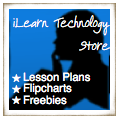Looking back on the past eight weeks of this course I see
many important concepts and experiences that will likely influence the
significant changes occurring in my life. It doesn’t seem like so long ago that
I made the commitment to pursue a certificate in Instructional Design, but I
find myself already a quarter of the way there. It marks my first online
learning experience and my initiation into a different world of instruction and
learning than the one I have been a part of for the past 20 plus years.
One of the most surprising revelations to come from this
class for me was how much more relevant this material is to me now as opposed
to 25 years ago when I was first introduced to learning theory. As an adult with years of teaching experience
my perspective has altered significantly. I am able to draw many more
connections and assimilate this new learning into many more areas of my life.
Previously I viewed these theories as lofty concepts and disconnected ideas about
how people process information and behave. Now I see these theories as
foundational and practical resources for establishing solid and productive
instruction for learning. Another surprise was in the degree of interaction
that occurs between classmates. I was under an incorrect assumption that I
would be navigating my way through this course on my own with very little
meaningful contact with classmates. I was wrong, and this interactive element
of the course has been fruitful for me especially since I am usually quite
reluctant to want to share openly in group settings. Having access to others’
perceptions and applications has been both insightful and encouraging to me.
These enlightenments have helped to open the door on my own
personal learning process. They have shown me the importance of making
connections to prior learning and the role of experience in assimilating new
information with prior knowledge to create new mental constructs. It has also
enhanced my appreciation for the vital role that others play in enhancing our
learning. Social interaction and discussion have helped me to see content from
varying perspectives and has exposed me to new and creative ways to look at
information.
My current views regarding the connections between learning
theory, styles, technology, and motivation have been clarified throughout this
course. I now recognize that “no single theory can adequately account for all
learning… each theory describes particular features of learning or cognitive
development and focuses on identifying the factors that will lead to identified
outcomes.” (Ormrod, Schunk, & Gredler, 2009, pg. 6) I now believe I have a
proper appreciation for the foundational role that these theories play with
regards to explaining how we learn. Gardner’s concept of learning styles is
helpful in describing the various preferences that people have for how they
learn but it is important to remember that preference does not mean that
individuals can’t learn using other formats. It is also important to note the
fact that some content is best delivered using a specific method regardless of
the learners preferred style.
Technology has changed the face of education in recent
years. It now plays a vital role in the delivery, dissemination, and
application of information. I currently find myself in agreement with those who
would say that the technology itself does not manufacture learning, but is a
potentially very useful tool for enhancing the way that people learn in the 21st
century. The other (and maybe most important) factor that influences learning
is motivation. It can originate from either internal or external sources but is
most influential on one’s learning when it comes from within the learner.
Adults tend to be more intrinsically motivated to learn than younger students
but can still experience frustration that interferes with their motivation to
learn. This course has helped me to place a healthy emphasis on the role of
motivation as well as providing strategies to enhance and foster its
realization in the learner. All these elements of learning are interrelated and
serve to explain and clarify a portion of this complex process called learning.
Understanding how they relate to one another and the importance each one plays
will help me to design effective instruction in the future.
I believe that the content from this course will serve as a
firm foundation for the remainder of my coursework. Since the ultimate goal for
an instructional designer is to help an individual or group to learn, retain,
and apply information; this course lays the groundwork on which I can build the
practical and technical skills to accomplish this goal. It will also serve to
enhance my own personal learning process since I now understand how I learn
best. The concepts and strategies that I have learned from this course will
serve me well as I pursue a future in Instructional Design.
References:
Ormrod, J., Schunk, D., & Gredler, M. (2009). Learning
theories and instruction (Laureate custom edition). New York: Pearson

